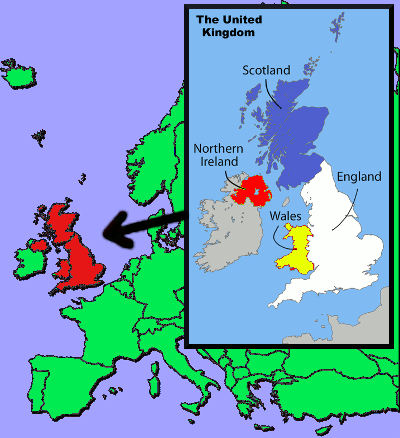
Circle the area on this map

A. Parliament’s House of Commons holds the ultimate political, legislative and executive power in the United Kingdom. The House of Lords can review and possibly delay measures passed by the Commons, but they cannot block them except in rare cases. Laws also must have the royal assent of the monarch, which is considered a formality.
D. The Caribbean island nation of Dominica has been a republic since it became independent in 1978. The queen or king of the United Kingdom also serves as the ceremonial monarch of the sovereign states of Australia, Canada, Bahamas and 11 other former British colonies.
A. The British constitution comprises written and unwritten arrangements which have evolved over centuries. Unlike in most countries, no attempt has been made to codify these arrangements into a single document. That makes it possible for members of parliament to pass laws changing the nation’s constitution. Any law enacted by Parliament can be revoked or changed by future lawmakers.
C. In Sweden, 74% said they were happy with the way democracy worked for them. Greece was the most dissatisfied, with 74% unhappy with the way things were going. In the United States, 59% were dissatisfied, while north of the border most Canadians – 66% – thought their democracy was working fine.